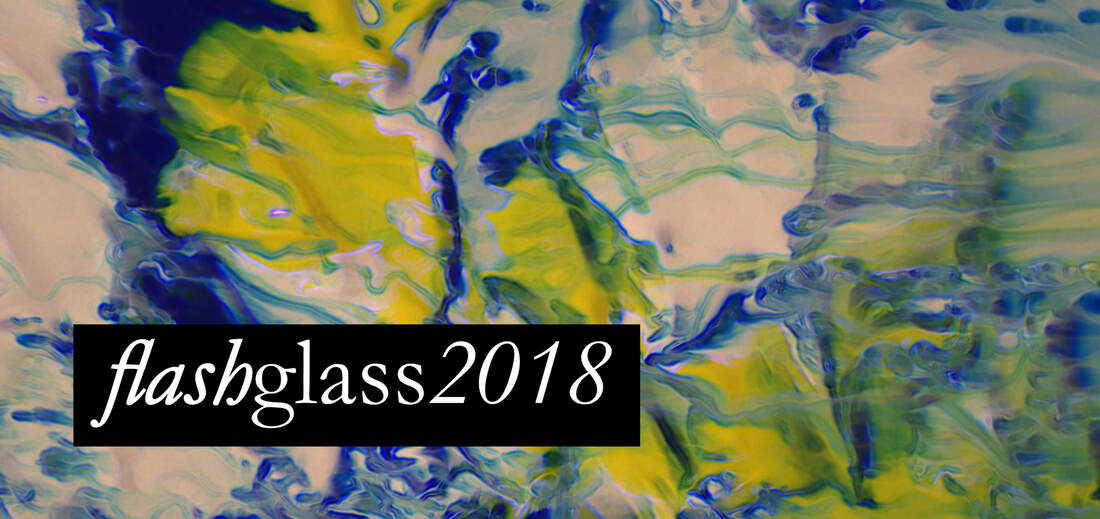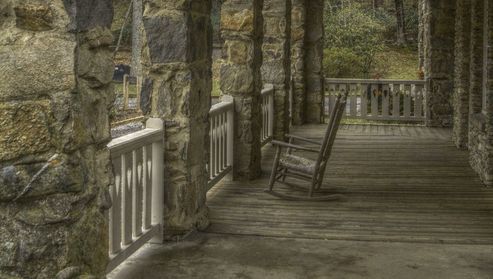 curve over the top of a green glass vase at the center of the oak table. I’ve cut the flowers too long so after four days they look translucent and gorgeously weary, like dancers in costume after a rehearsal. The sound of the occasional car drifts through the open windows. Further off, someone is moving their lawn. In the late summer light I sit down with a notebook and try to write out lists of tasks I’ve been thinking about for weeks. All the cleaning I have to do, the new job I need to find, the friends I should try to get back in touch with, the friends I’ve lost for good. I do my best to will my hand into writing out the new healthy diet I will follow and the contingency plans I should make, just in case things don’t go the way the doctors hope. Then there are the other lists, the ones that will include all the trips I’ll take if I keep living and the love I’ll find though I haven’t found it yet and the novels I’ll finish writing and the elaborate desserts I’ll actually bake and the little black bikini I’ll finally buy. It seems strange that it’s summer, or maybe it seems strange that it’s summer and I’m still there, in my house, at my table, sitting before an overfilled vase as cars full of people rush to wherever people rush to. In December I lay in a wilted body at the center of a maze of tubes. To raise an arm or a leg took effort. To breathe took effort. On Christmas Eve I pushed myself out of bed, clinging to my IV pole as I maneuvered myself toward a row of regulation chairs at the end of the hospital floor. Through the plate glass windows, far below, a Christmas tree shone in darkness, its needles clothed in a universe of LED lights. I’d like to say I imagined all the kids in their beds trying to fall asleep and all their parents assembling bikes incorrectly and all the other kids in other countries starving inside their skins and the terrible, unpredictable unfairness of the world. I’d like to tell you I wondered about God. But the truth is I wasn’t thinking about anything—just like I’m not thinking about anything as I sit here at my kitchen table six months later. The sunlight falls across the floor in wide squares. The ballerina daisies spill over the top of the vase. The wind streams through the windows and ruffles their ghostly skirts.  Lori Lamothe is the author of three books of poetry, most recently Kirlian Effect (FutureCycle, 2017). Her work has appeared in Blackbird, The Journal, The Literary Review, Painted Bride Quarterly, Verse Daily and elsewhere.
0 Comments
My mother told me how her mother wrung the necks of chickens around and around until it was enough. Feathers flew and bodies jerked like fingers before sleep. So hard for me to imagine of her own bird-slender bones, how she rubbed her hands together gently, rocking on the porch and humming some old hymn or other, her dry palms making papery music. My grandfather told me of pre-dawn stillness, then the white-tailed bolt, a shot breaking the quiet. Once I begged to see my first kill when they came back. The buck was strapped to the Ford, eyes fixed wide, head hanging, looking alive but for a drizzle of blood from its slender lip, its body draped on that car like a quilt that doesn't fit the bed no matter how you turn it. My mother told me once her grandfather drowned a litter of kittens in the well. There were too many, his thick hands hard in the water, this economy of letting go. What I wanted was to hold on. I was a child then. The grandparents have gone silently to the ground. ~ Stories don’t always end. They may loosen like skin with age and spill out of shape like words whispered through cupped hands ear to ear. Something about them may gape open like clothes; their seams may give. They may slip around me like borrowed dress-up that drags the floor and catches my heel enough that I pay them mind and don't trip.  Elinor Ann Walker teaches writing online at the University of Maryland-University College. Her poems (also under "Ann Walker Phillips") have appeared in Poet Lore, The Christian Science Monitor, Cicada, Rosebud, Mezzo Cammin, Soundzine, NonBinary Review, and Stone Renga (Village Books Press, 2017) and are forthcoming in Halfway Down the Stairs. She lives in Tennessee with four dogs and her family.  I admit that I used you over the years, to fill with light the cracks where my memory falters. I once read that Penelope didn’t trust a dream in which Odysseus returned to her, because she was uncertain whether the dream had arrived, like true dreams do, through the gate of horn, or—like those from a shadowy district of falsehood—through the gate of ivory. I am like this even now, often wondering whether an incident is truly mine to remember, or, from your vivid retellings, I have stolen it. I am clear in certain things: We sat on the deck in folding chairs then, looking over the valley onto Utah lake, holding glasses of cold tea made with the mint that grew between the rocks in the backyard. When I felt my glass grow slippery in the heat, I would grip it in both of my hands. When we returned inside the house you would count each of the splinters you extracted from my feet as though they were precious—butterflies that could slip away, or more fatally, be crushed inside your fingers. We were endless in those weeks when the Wasatch mountains looked fresh from where we stood and the leaves along the Alpine Loop had not yet turned orange. And yet the nights held a stillness that only a mutual knowledge of impending change could procure. In the sky, Lyra crowned us with her seven stars recognizing one another’s glow: a parallelogram of sorts, and a triangle. Having never for myself pieced them together into anything more than geometry, I resented the stars for which my interpretations, though numinous, though true, could only be discarded. These, and the meteors that refused to show themselves, blue moons which to me, all looked the same. When you pointed to the sky I nodded, not because I understood, but because someone else had long ago understood for me.  Anna-Marie Sprenger is from Provo, Utah and currently studies linguistics at Stanford University. Anna-Marie’s work has appeared in Textploit and Silver Needle Press, and has been presented at the National Undergraduate Literature Conference. |
FLASH GLASS: A MONTHLY PUBLICATION OF FLASH FICTION, PROSE POETRY, & MICRO ESSAYS
Categories
All
Cover Image: "Verano"
|
|
Glassworks is a publication of Rowan University's Master of Arts in Writing 260 Victoria Street • Glassboro, New Jersey 08028 [email protected] |
All Content on this Site (c) 2024 Glassworks
|



 RSS Feed
RSS Feed
